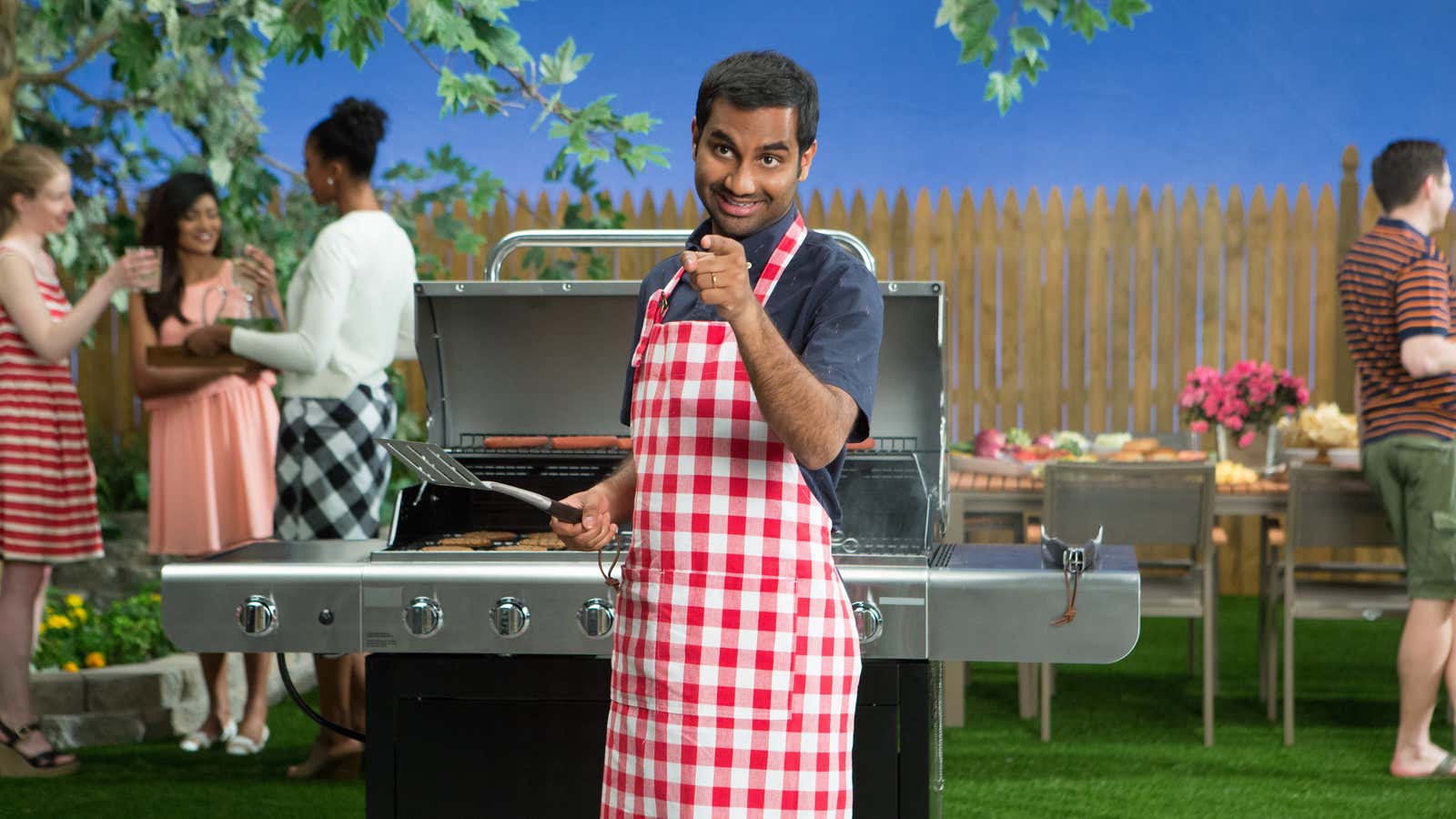What makes a Netflix show a Netflix show? The question has frustrated industry analysts and marketers for years. As Netflix now tries to take over the world, the matter appears to be settled once and for all: Netflix shows don’t have a “brand”—and that’s very much intentional.
Netflix is the world’s chameleonic TV channel. It wants to be everything to everyone.
Yesterday (Jan. 26), HitFix TV critic Alan Sepinwall published a lengthy, unusually candid interview with Netflix’s head of content, Ted Sarandos, about the company’s acquisition strategies, its subscribers’ viewing habits, and the benefits of serialized storytelling. Perhaps most illuminating, though, was Sarandos discussing how Netflix sees itself, in response to a question about whether its lineup of original shows intentionally has no concrete, unifying brand:
[It’s] deeply intentional. Our brand is personalization. That’s the key, so I can’t go too far off of that. What I really said at the beginning [was] we didn’t want any show to define Netflix. And we didn’t want Netflix to define any one of our shows. So it really is about what people’s tastes are and if you love The Ranch, you may not like The Get Down, and vice versa. They really are geared to different audiences, but it’s having the artistic license to make shows in all these different arenas that’s really amazing. But I think if you really silo what you’re interested in, like “We only want shows for men 18 to 49,” then you’re going to get a mixed bag of shows for men 18 to 49. You say, “No, I want the best shows from everyone in the world for everyone in the world.” Then you’re going to be more likely to stumble onto something great like a Master of None.
The question is often raised because many Netflix competitors do have a “brand” for their shows. HBO, as Quartz has documented several times, “stands for good shit.” It’s the place where the best writers and directors and actors want to go to tell adult-oriented stories. And HBO shows, more often than not, reflect that ethos.
FX was long known as the home of the dark, gritty drama, with shows like The Shield, Sons of Anarchy, and Justified. In 2013, it adopted the slogan “Fearless”, and made itself known for bold, inventive storytelling (shows like Fargo, American Horror Story, and Louie are all written in nontraditional ways).
And as Sepinwall notes in the interview, when AMC started making original content, it wanted the styles and genres of its shows to sync with its existing library of movies. A few years later, after the debuts of Mad Men and Breaking Bad, AMC changed its slogan to, “Story Matters Here.”
Netflix, meanwhile, doesn’t have a slogan—and that’s strategic, too. If the company were to make an official slogan, it would probably be something like, “It’s all here,” or, “It’s personal.” But to do so would contradict its own maxim, that Netflix doesn’t ask its viewers to perceive its shows in any specific way. Instead, the viewer decides. (For what it’s worth, Netflix has used the phrase “Discover new stories” on some billboards.)
A quick glance at Netflix’s catalog of original shows makes this emphasis on personalization rather obvious. There are dark, HBO-like dramas; quirky comedies; cartoons for kids; a growing slate of superhero series; shows told in languages other than English; and reboots of shows you loved 20 years ago. It’s unlikely you watch Netflix for all of the above categories—rather you probably watch it for one, maybe two, of those genres.
To be sure, Netflix’s intentional lack of a “brand” doesn’t mean the company has a problem with brand awareness. Quite the contrary. (“Netflix and chill” should be proof enough for that). As Jason Lynch highlights in Adweek—citing a brand perception study done by consumer insights firm iModerate—Netflix trumps competitors like Hulu and Amazon precisely because its name alone is so powerful:
Proof of Netflix’s superior platform brand identity: Users talk about “watching Netflix” as opposed to watching a specific show on Netflix. They often first decide to binge a Netflix show and then pick the series. In other words, the platform is driving the content.
